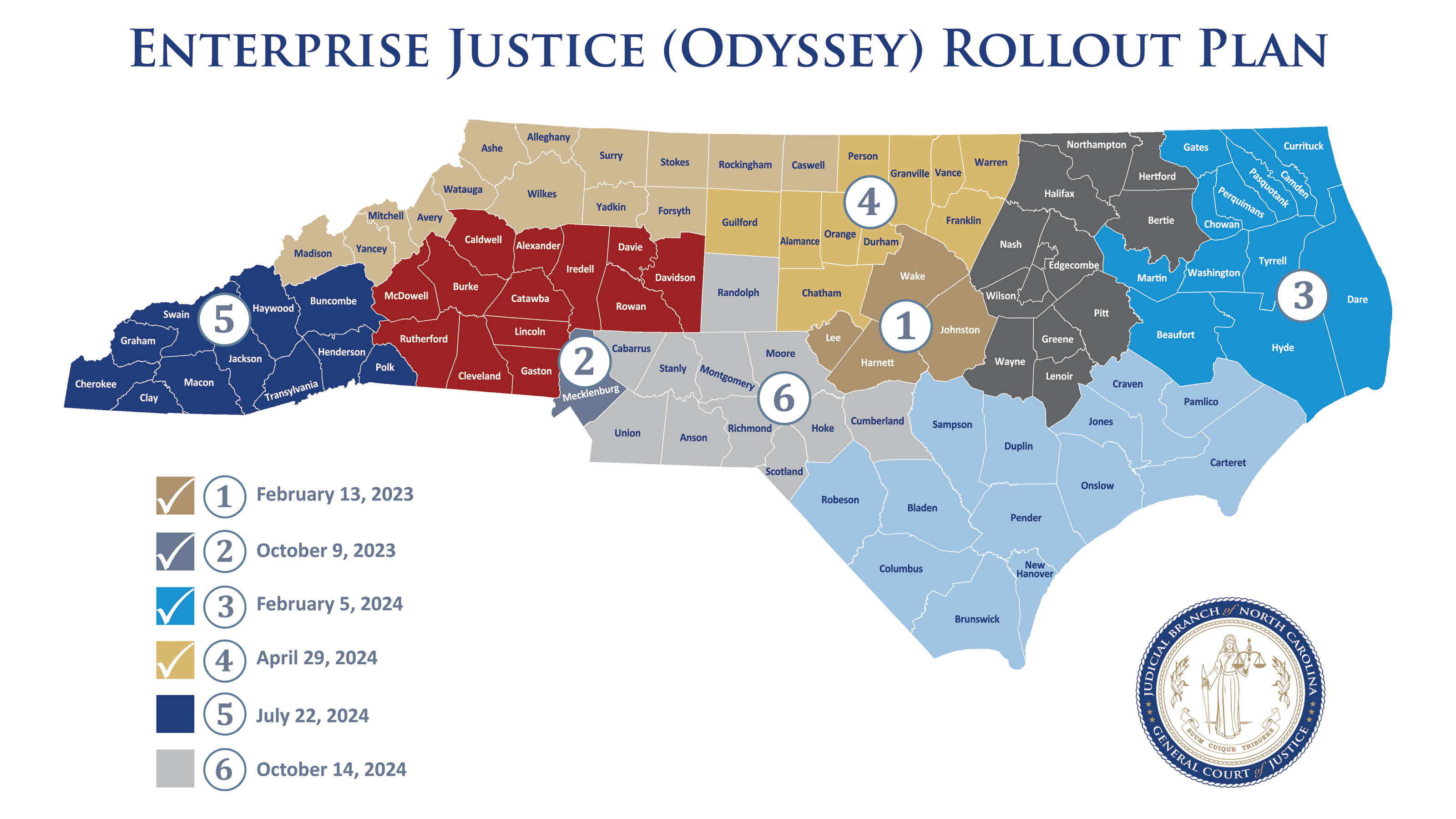eCourts Expanding to Half of State by October 2024
Article contents

UPDATE:
- eCourts is Now Live in 11 More Counties in Southern and Central Piedmont
- eCourts Training Resources and Track 6 Transition Information
- eCourts Expanding to All 100 Counties in 2025 (Tracks 7-10) and N.C. Business Court
The eCourts expansion will reach 49 of the state’s 100 counties when Track 6 goes live on October 14, 2024, the North Carolina Administrative Office of the Courts (NCAOC) announced today.
Track 6 includes Anson, Cabarrus, Cumberland, Hoke, Montgomery, Moore, Randolph, Richmond, Scotland, Stanly, and Union counties, and is the final group of counties to transition to eCourts in 2024.
eCourts currently serves nearly half of North Carolina’s population in 27 counties and the state’s three largest metropolitan regions.
The eCourts project is upgrading North Carolina from a laggard to a leader in 21st century case management systems in the United States.
North Carolina’s Judicial Branch stands out among its peers by transitioning all case types, in all 100 counties, from paper files to electronic records in a fully cloud-hosted digital environment that integrates with law enforcement applications.
“Serving half of North Carolina with online access to court records by October 14, 2024, is an important milestone for the Judicial Branch as the eCourts project continues to transform access to justice for the people of our great state,” said NCAOC Director Ryan S. Boyce.
The generational benefits of the eCourts system include:
- Empowering the public to access and file records with the justice system online 24/7 instead of only inside courthouses during business hours.
- Reducing travel time through shared digital access to records and remote hearings.
- Integrating with public safety systems to help court officials and law enforcement access critical information through connected applications.
- Assisting users in drafting and filing the most common legal actions through the Guide & File automated interview service.
- Replacing printed forms and records with electronic workflows to save millions of sheets of paper and valuable courthouse space.
- Standardizing court business processes to promote consistency statewide.
- Introducing courthouse kiosks that provide printing, scanning, payment services, and direct access to eCourts applications.
- Reducing the number of returned forms that are filled out incorrectly in paper, resulting in court delays for litigants.
- Updating hardware infrastructure, network bandwidth and wireless connectivity in courthouses for court officials and the public.
- Providing on-demand training resources, videos, guides, and live introductory sessions presented both in-person and online.
- Updating cybersecurity and data recovery capability systems from obsolete mainframe technology to cloud-hosted infrastructure.
- Streamlining judicial officials’ access to case data, dockets, and calendars in or out of the courtroom.
- Reducing phone calls and in-person visits to customer service counters, freeing up court staff to handle complex issues for customers.
- Centralizing a statewide financial management system to facilitate more convenient and timely payments to the court system.
Preparations are ongoing for the next transition of the eCourts rollout on July 22, 2024, when Track 5 goes live in 11 counties in western North Carolina as previously announced.
Find more eCourts information and resources at NCcourts.gov/eCourts.
